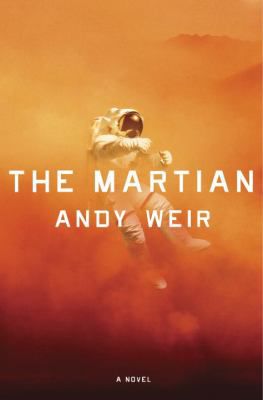At the beginning of “The Martian,” the crew of the Ares 3 is caught in a sandstorm of monstrous proportions, forcing them to flee Mars on Sol 6 of their mission and leave the body of their crewmate, Mark Watney, behind. Little do they know, Watney did not actually die on Sol 6, but is trapped in the harshest environment humans have fathomed to go to without any help. The kicker is that no one knows he’s there.
Watney has a limited food supply, a broken living unit and no way to get in touch with NASA or his crew. The author, Andy Weir, has created a masterpiece in his New York Times bestseller “The Martian.” Predominately told through the video journals of the foul-mouthed botanist Mark Watney, Weir weaves a story of survival and human determination. Even though reading another day means that Mark survived the trial he’s about to relay, when he recounts the story, the reader can forget that it’s already happened within the book. This strips them of the relief they had when they first started reading that entry.
Despite its greatness, foul language is peppered throughout “The Martian,” but it is used in a way that makes the story seem more real; honestly, if you were abandoned on Mars, swearing probably isn’t the least of your worries. As with any book, especially science fiction, the science was a little off. It failed to consider the effect of the lighter atmosphere of Mars on the actual strength of the storm. A 100 mph storm on Mars is more like a 10 mph wind gust on Earth. .
Other than the few scientific inaccuracies, “The Martian” is amazingly written. Writing through journal entries is extremely difficult and only works in certain stories, but Weir has mastered it entirely. Weir also takes the time to quickly fully develop Watney into a character that you can’t help but fall in love with, even though he’s a bit of a jerk. Weir puts Watney through hell and back again, pushing him to see if he cracks or becomes the most brilliant and daring rescue mission in human history.
“If a hiker gets lost in the mountains, people will coordinate a search. If a train crashes, people will line up to give blood. If an earthquake levels a city, people all over the world will send emergency supplies. This is so fundamentally human that it’s found in every culture without exception.” (“The Martian,” Andy Weir)
Categories:
The Martian: a novel review
by: Akim Koutsioukis, Contributor
September 3, 2018

Courtesy of Wikipedia
martian book cover
0
Donate to The Tiger
Your donation will support the student journalists of Clemson University. Your contribution will allow us to purchase equipment and cover our annual website hosting costs.
More to Discover







